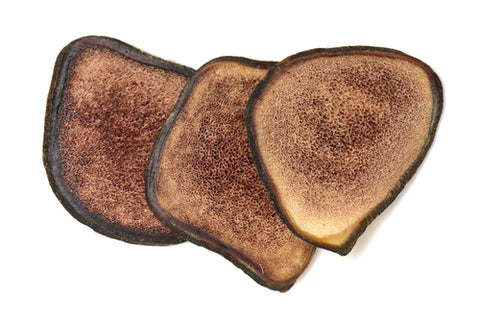Journal
The Language of Disempowerment: Reclaiming Autonomy in a Medicalized World

Modern medicine's advancements are undeniable, but its shadow side—the medicalization of everyday life—demands scrutiny. Normal human experiences are increasingly framed as illnesses requiring intervention, shifting our locus of control from within to external authorities. Terms like "self-care," while seemingly empowering, subtly reinforce this dependence. We must challenge this narrative, cultivate critical thinking, and reclaim personal agency. Trust your intuition, explore diverse healing modalities, and choose language that promotes resilience, not reliance.
Beyond the Medicalization of Everyday Life: A Path to Holistic Health and Freedom

The modern world is caught in a paradox: medical advancements promise unprecedented treatments and interventions, yet the increasing medicalization of everyday life threatens our autonomy. This article explores how normal experiences, from fatigue to mood swings, are increasingly being reframed as medical problems requiring intervention. We examine the role of the healthcare industry, technology, and misinformation in this trend, with a particular focus on the rise of functional medicine. We also offer a path towards reclaiming agency over our well-being. Join us as we uncover the hidden costs of medicalization and explore a more holistic approach to health.
Thriving Under Pressure: Why Stress Optimization Matters

Stress is often seen as something to be minimized and avoided. But what if we reframed stress as a catalyst for growth? Stress optimization involves embracing challenges, building resilience, and viewing stress as a signal that we are pushing our boundaries and living a full life. This approach allows us to tap into the energy of stress and use it to fuel our progress.
Managing Stress: A Medical Intervention vs. Adapting to Stress: Health Optimization

Stress management and medical intervention address overwhelming stress that negatively impacts health and well-being. This approach focuses on identifying and treating the root causes of stress, often through medical or therapeutic interventions. In contrast, health optimization views stress as a potential catalyst for growth and development. It empowers individuals to build resilience, navigate everyday stressors proactively, and even utilize stress to achieve their goals.
Kratom: An Intoxicant Excluded from Herbalism

Kratom, despite its historical use, is excluded from modern herbalism due to its intoxicating properties. While some perceive benefits, its potential for dependency and lack of scientific evidence clash with the principles of herbal practice, which prioritizes balance and avoids substances that disrupt the body's natural functions. Herbalists recommend against kratom and other intoxicants, emphasizing education on safe and effective herbs that align with holistic well-being.
The Unseen Thief: How Heavy Metal Toxicity Steals Your Potential

Heavy metal toxicity, a silent thief, robs us of cognitive potential. It accumulates gradually, impairing memory, focus, and decision-making, leaving us uninspired and limited. Early detection and intervention are crucial. Consult a healthcare professional if you suspect exposure, and consider natural detoxifiers like fulvic and humic acids. Reclaim your stolen potential and embrace a brighter future.
Reframing Healthy Eating: Focusing on Well-being, Not Disease Risk Reduction

In today's health-conscious world, we're often told that a healthy diet and supplements can prevent diseases. But is this true? While a balanced diet and appropriate supplement use support overall well-being, they don't act as medical interventions. Disease prevention is complex, influenced by genetics, environmental exposure, bad habits, harmful behaviors, and even chance. Let's separate food and supplements from unrealistic expectations, focusing instead on their role as healthy choices in promoting a healthy lifestyle.
Unraveling the Simplicities of Health and Disease

"Health is an inherent state of well-being, while disease is a separate process that can negatively impact quality of life. Individuals can optimize their health through lifestyle choices, even in the presence or absence of disease. Access to healthcare is crucial for disease prevention and management, while empowering individuals to make informed decisions about their well-being."
Rethinking Salt: Beyond the Shaker and the Stigma

For decades, salt has been demonized as a dietary villain. However, emerging research challenges this narrative, suggesting that moderate salt consumption is not only safe but also essential for overall health. Beyond its role in blood pressure, salt supports gut health, sleep quality, and more. By creating a culture of fear, the medicalization of salt may inadvertently benefit the processed food industry and lead to disordered eating patterns. It's time to rethink our relationship with salt, prioritize whole foods, and embrace a balanced approach based on education and awareness.
Evidence-Based Supplement Websites: A Call for Discernment

In the world of supplements, numerous websites offer information disguised as evidence-based analyses. While valuable, critical evaluation is crucial. These sites may focus on specific health concerns, neglecting the importance of a balanced diet. Additionally, potential biases and financial ties can influence content. To make informed decisions, consult multiple sources, prioritize personal education, and think critically. Remember, evidence-based practice involves ongoing learning and adaptation.
Evidence-Based Supplements: Navigating a Sea of Misinformation

In the world of supplements, quick fixes and catchy headlines often overshadow the complexities of evidence-based science. Navigating this landscape requires more than just reading studies. Critical appraisal, individualization, and awareness of potential biases are crucial. By seeking reliable sources and embracing lifelong learning, you can make informed choices that truly support your health and well-being.
Evidence-Based Science: More than Just Showing the Evidence

Evidence-based science is more than just presenting evidence. It's a rigorous process that involves hypothesis testing, peer review, and a commitment to the scientific method. Abductive reasoning, often used in medicine, can lead to 'cookbook medicine,' where loosely correlated evidence dictates treatment. Hypothetical-deductivism, the gold standard of the scientific method, actively seeks to disprove hypotheses, leading to more reliable conclusions and safer treatments.
Inflammation: Ancient Observations, Modern Medicine, and the Evolving Understanding of the Immune Response

The concept of inflammation has a fascinating history, dating back to ancient observations of redness, swelling, heat, and pain. Early physicians like Hippocrates recognized these signs but lacked the understanding of the underlying mechanisms we have today. Modern medicine distinguishes between the normal immune response, crucial for healing, and pathological inflammation, a contributor to various diseases. This evolution in understanding highlights the importance of recognizing the body's natural healing processes and avoiding over-medicalization.
Homeostasis: The Key to Health, Separate from the Challenge of Illness

Homeostasis, the body's remarkable ability to maintain internal balance, is a cornerstone of life itself. This dynamic equilibrium is a testament to the intricate workings of countless physiological processes, ensuring optimal function even in the face of external challenges. It's important to understand that illness or injury, while disruptive, are distinct processes separate from the ongoing maintenance of homeostasis. In essence, being alive is proof of the body's ability to maintain this dynamic balance. While illness is a pathological process that the body actively works to overcome, it does not negate the underlying state of homeostasis that sustains life.
Understanding the Immune System and Its Allies: Dietary Supplements and Vaccines

The immune system is a complex network that defends our bodies from harmful invaders. While a balanced diet rich in whole foods is essential for optimal immune function, various factors can affect nutrient availability. In such cases, dietary supplements can offer a convenient way to complement a healthy diet and support overall health. Additionally, vaccines play a crucial role in public health by providing the immune system with the knowledge to recognize and combat specific pathogens.
The Abuse of Recreational Drugs and Intoxicants: A Threat to Health Optimization

Recreational drugs, used to deliberately impair bodily functions, include cocaine, steroids, opioids, psilocybin, LSD, marijuana, and CBD. Illicit use is dangerous and can worsen existing conditions. Herbalism, using herbs and food for medicinal properties, is different. The allure of altered states offered by recreational drugs is a shortcut with a steep price, leading to physical and mental health problems. They do not heal and can lead to addiction. The DEA classifies drugs based on abuse potential and medical use, helping regulate availability and use. Choosing health optimization over substance abuse is crucial for well-being.
The Evolution of Medical Quackery: From Ancient Deception to Modern Misinformation

Medical quackery, or the fraudulent promotion of medical treatments, has a long history. Before the 18th century, many cultures viewed health holistically, focusing on balance and supporting the body's inherent healing abilities. However, even then, "quacks" existed, exploiting health concerns for profit. The 19th century saw a surge in quackery with the rise of "snake oil" salesmen, promising miracle cures. They often misrepresented traditional remedies, twisting the concept of health optimization into a false promise of curing diseases. This not only harmed individuals but also damaged the reputation of legitimate traditional healing practices. The proliferation of quackery ultimately led to stricter regulations and the rise of evidence-based medicine.
The Deceptive Allure and Devastating Consequences of Intoxicant Abuse: Unmasking the Dangers

Intoxicants, substances altering body and mind function, come in various forms like alcohol, drugs, and certain plants. Despite potential short-term benefits, their abuse carries grave risks. They are categorized as narcotics, stimulants, depressants, or hallucinogens/psychedelics, each with distinct effects. Misuse of intoxicants can lead to organ damage, mental health disorders, addiction, and even death. While some herbs have mild effects, they are fundamentally different, primarily serving therapeutic purposes. It's crucial to distinguish between the two and prioritize long-term well-being over fleeting pleasure.
Hemp vs. Cannabis: Unveiling the Intoxicating Differences of CBD and THC

Hemp and cannabis, while often confused, are distinct plants with varying properties. Hemp is primarily used for industrial purposes (textiles, rope, etc.) and its seeds offer nutritional benefits. Cannabis, on the other hand, contains high levels of intoxicating cannabinoids like THC and CBD.
Both THC and CBD interact with the body's endocannabinoid system, but their effects differ. THC primarily causes the "high" associated with cannabis, while CBD, although not as psychoactive, can still induce intoxication and has potential therapeutic effects. However, research suggests these therapeutic claims are often exaggerated, and CBD's intoxicating and detrimental effects, such as neurological, mood, cardiovascular, reproductive, cognitive, and metabolic issues, may outweigh any potential benefits.
The FDA has raised concerns about CBD's safety, particularly its long-term use, potential liver damage, drug interactions, and harm to the male reproductive system. As such, existing regulations do not permit CBD in supplements or food.
Consumers must be aware of the differences between hemp and cannabis and make informed decisions about CBD consumption, considering both its potential benefits and risks.
Deer Antler Velvet for Muscular Strength and Endurance

A 2003 study showed results that deer antler velvet assisted trainees with promoting muscular strength and endurance over a ten week period of supervised training.
Deer Antler Velvet Study for Bone Health

In 2015, a study was done with genetically similar human-like lab rats to determine if supplementation with deer antler velvet is good for maintaining and promoting bone health.
